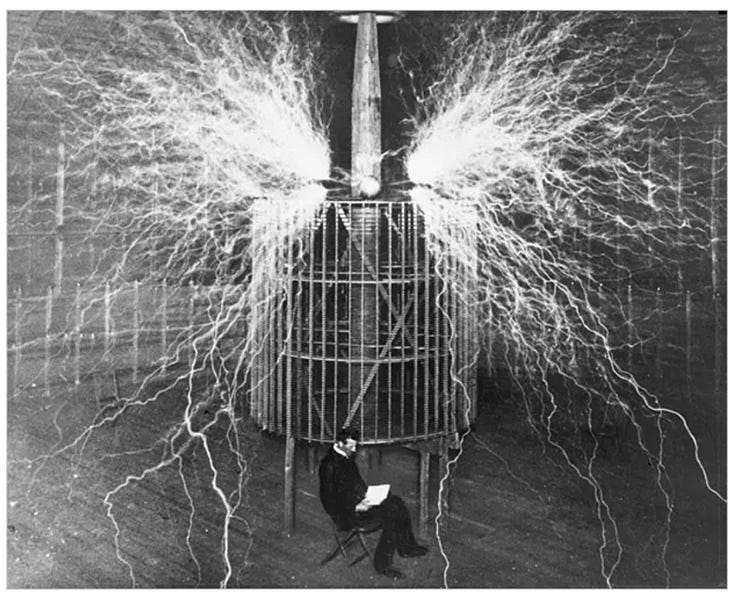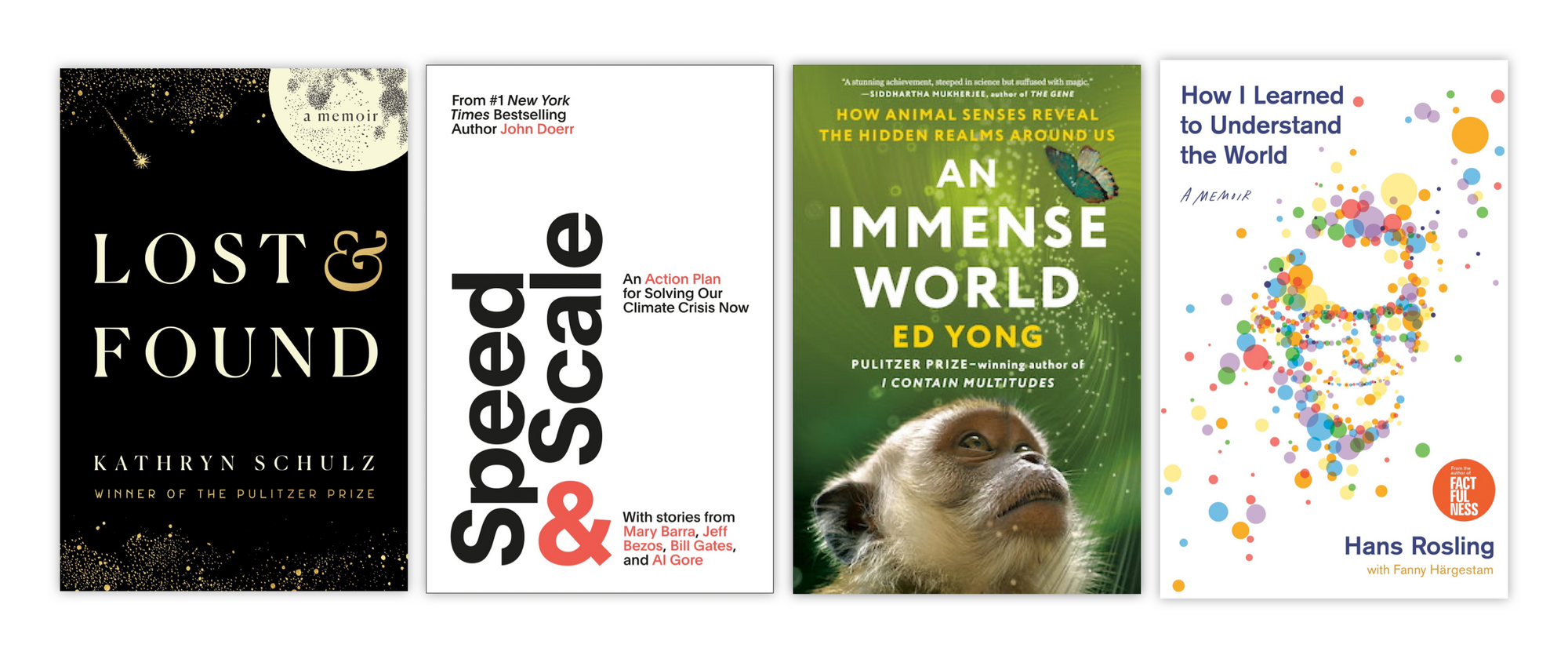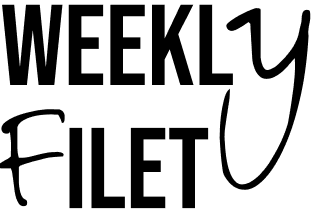🏝 Summer Edition #2
Five highlights from the year so far, two book recommendations and a podcast to binge on
I'm still on holiday this week, taking a quick break from my newslettering duties. However, I've prepared another summer edition for you, with five highlights from the year so far, two more book recommendations and a podcast to binge on.
The next regular Weekly Filet will be in your inbox next Friday, August 12.
1. Beyond Doomscrolling and into Action
On the surface, this is about the attack on women’s rights. However, to quote from the essay: «It’s all connected. We need to build a whole ecosystem of change-making.» The author shows ways to translate anger, fear and powerlessness into action. I particularly liked one idea that addresses the obstacle that each individual feels overwhelmed by the challenges ahead: It’s thinking of change as fractals — big change is made up of smaller versions of the same change. (from Weekly Filet #393, in May 2022)

2. Old thinking will break your brain
Alex Steffen is one of my favourite writers for making sense of the climate crisis. In this powerful essay, he addresses a fundamental issue we humans face with the climate crisis: «We’re trying to understand an unprecedented future with the worldviews of an older age, formed on a different planet.» It reminded me of one of my favourite quotes, by Paul Graham: «When experts are wrong, it’s often because they’re experts on an earlier version of the world.» With the climate crisis, it’s not just about the experts, but all of us. One particularly trenchant phase that will stick with me: «persistent nostalgia for the future we thought we had». The climate crisis, among many other things, is a narrative challenge. (from Weekly Filet #396, in May 2022)

3. Why? Why? Why?’ Ukraine’s Mariupol descends into despair
⚠️ Content warning: graphic images and descriptions of violence • It’s the details: Inhabitans of besieged Mariupol toss bodies into mass graves as fast as they can, to minimize the risk of being killed themselves. A lot of what you’re about to see and read in this report from inside Mariupol is unfathomable, unbearable. It made me think of something I learned from philosopher and former war journalist Carolin Emcke: Journalism is about bearing witness, giving a voice to those who can’t speak for themselves. The reporters of the Associated Press took great risks to witness what needs to be witnessed. (from Weekly Filet #386, in March 2022)

4. The Last Time Always Happens Now
«You always know when you’re doing something for the first time, and you almost never know when you’re doing something for the last time.» This question really does something to you: What could be something you recently did for the last time? (from Weekly Filet #394, in May 2022)

5. What We Can Learn From How the 1918 Pandemic Ended
As the first countries are lifting all but a few safety measures against the coronavirus, this might be a cautionary tale worth reading. The Spanish flu that caused the 1918 pandemic continued to kill a lot of people in 1920, «but the world had moved on». Reminded me of a piece a shared last October: Covid becoming endemic doesn’t mean it’s over. It means we choose an «acceptable» level of death and disease. (from Weekly Filet #380, in February 2022)

Two more I loved this year

An Immense World, by Ed Yong. At first glance, a fantastic book about the many mindbending ways animals sense the world around them. But really a lesson in empathy, full of reasons why you should never assume others experience the world the same way you do.
How I Learned to Understand the World, by Hans Rosling. His own story, told with the same talent for inspiring action as with everything else he did. A sad reminder that we lost this powerful communicator and force for good way too early.
📚 More great reads in the 2022 Weekly Filet Book Club: Books that make you feel hopeful)
A bingeworthy podcast: The Most Important Century
Let’s zoom out for a bit. Could this century be the most important for humanity ever — of all that ever were and ever will be? This long and thoughtful series makes that argument. In a nutshell:
- Artificial intelligence will lead to an unimaginable explosion of scientific and technological advancement.
- When that happens, humans as we know them will no longer be the main force in world events. Instead, it will be digital people or misaligned AI.
- This could happen as early as this century. Therefore, now is our last chance to shape how that transition happens, making this the most important century for humanity.
To be honest: I went into this series like 🙄 and now I’m like 🤯.

Thanks for reading. See you soon!
— David 👋
You've already run out of great things to read, watch or listen to? Hit the button and let the serendipity time machine serve you a surprise.







